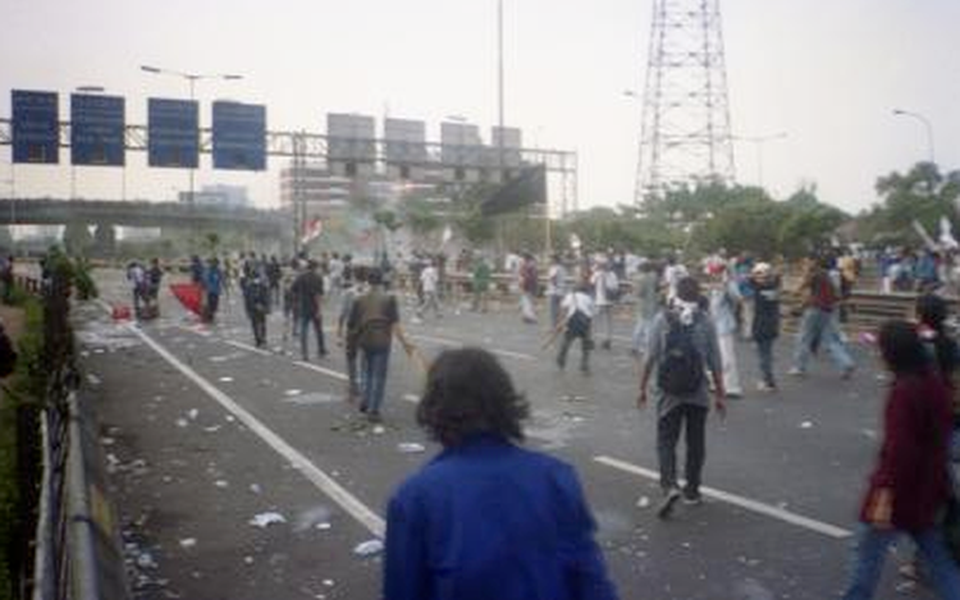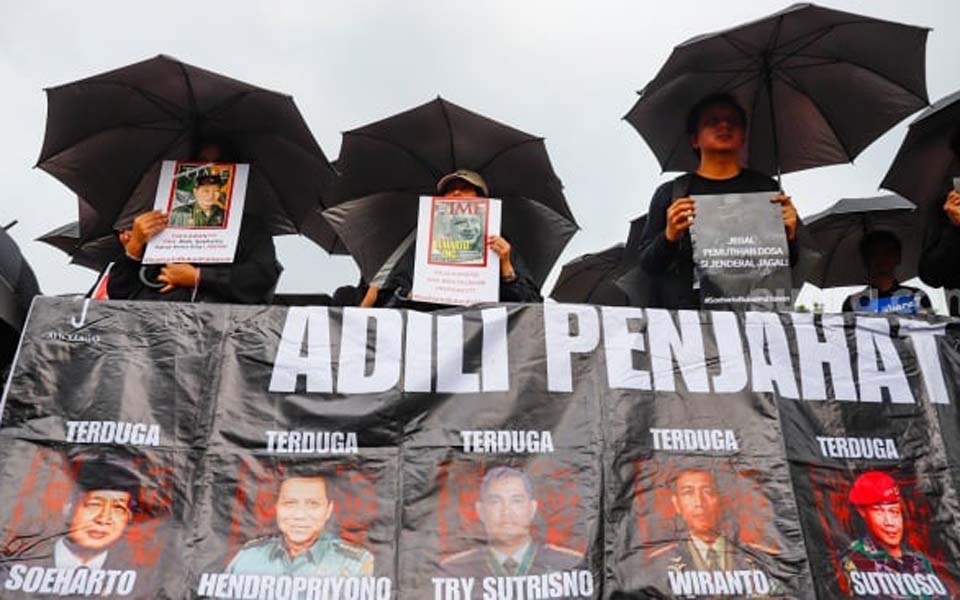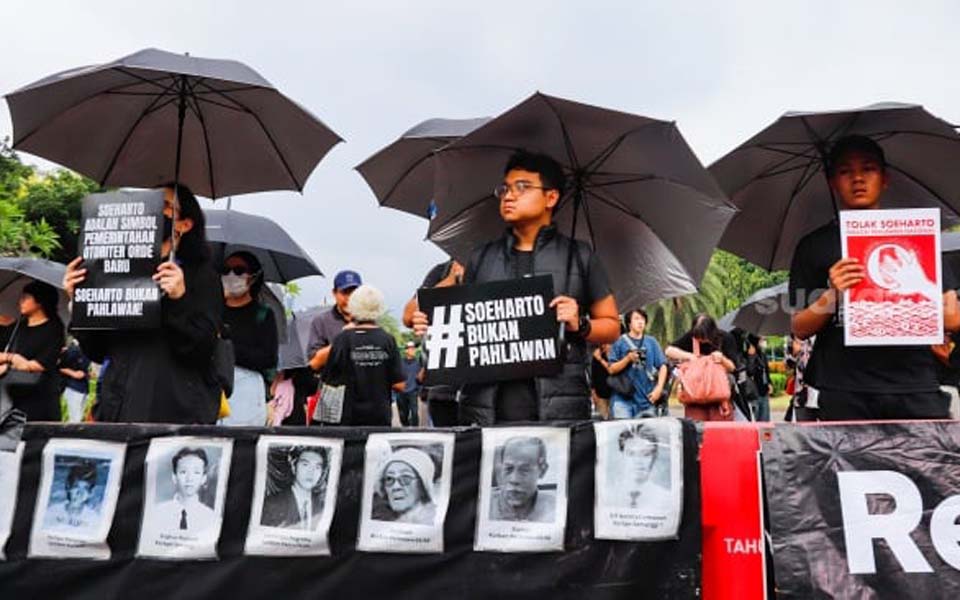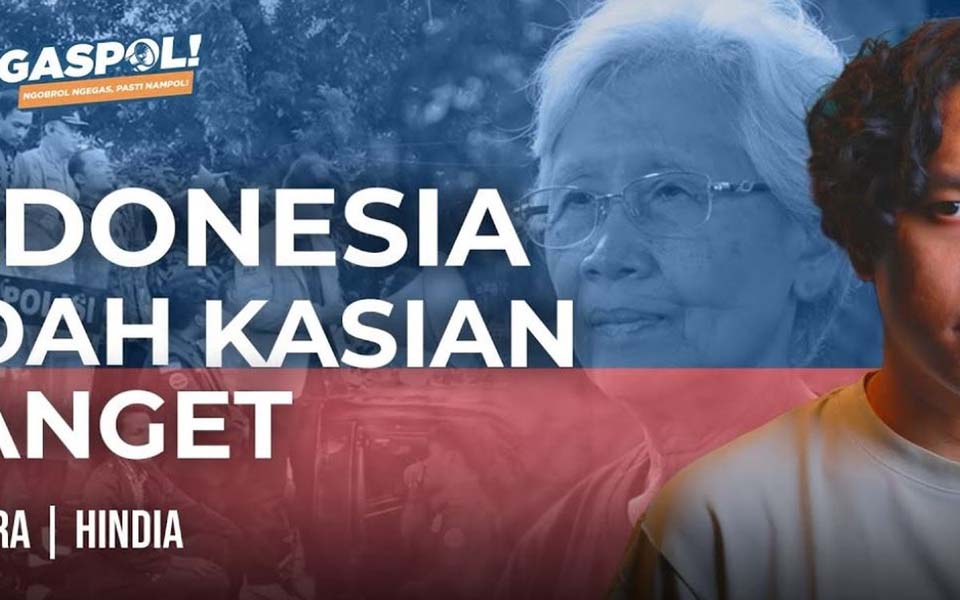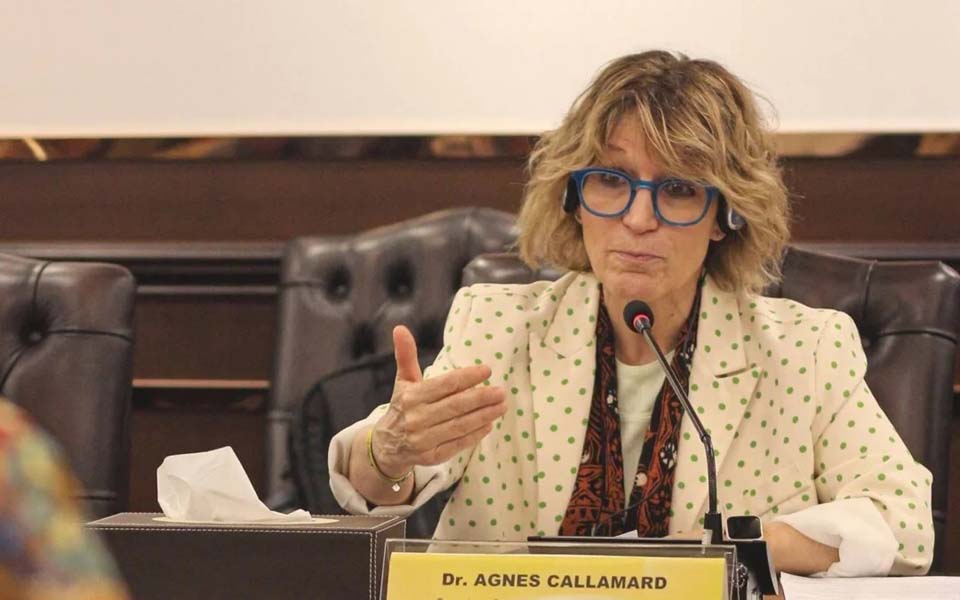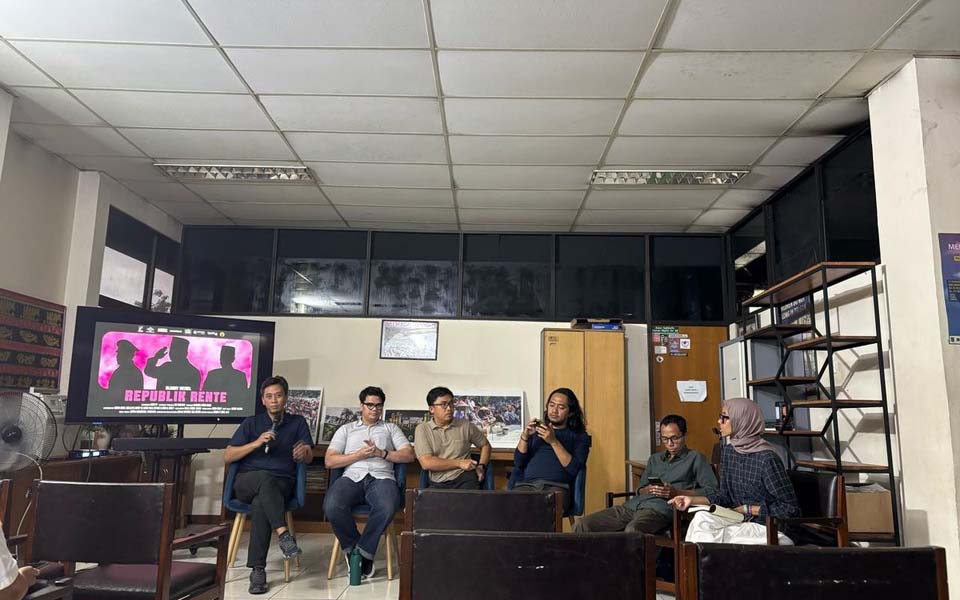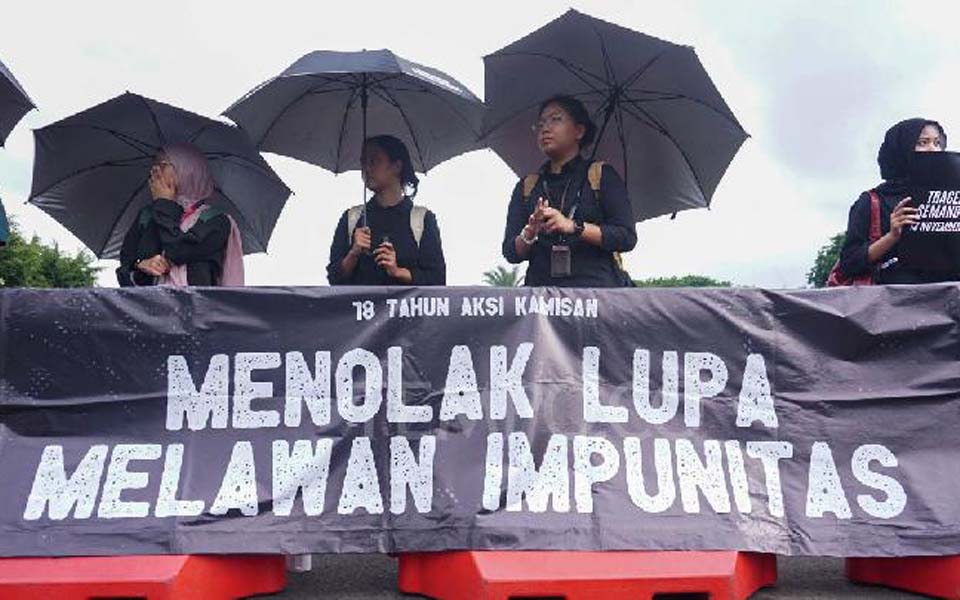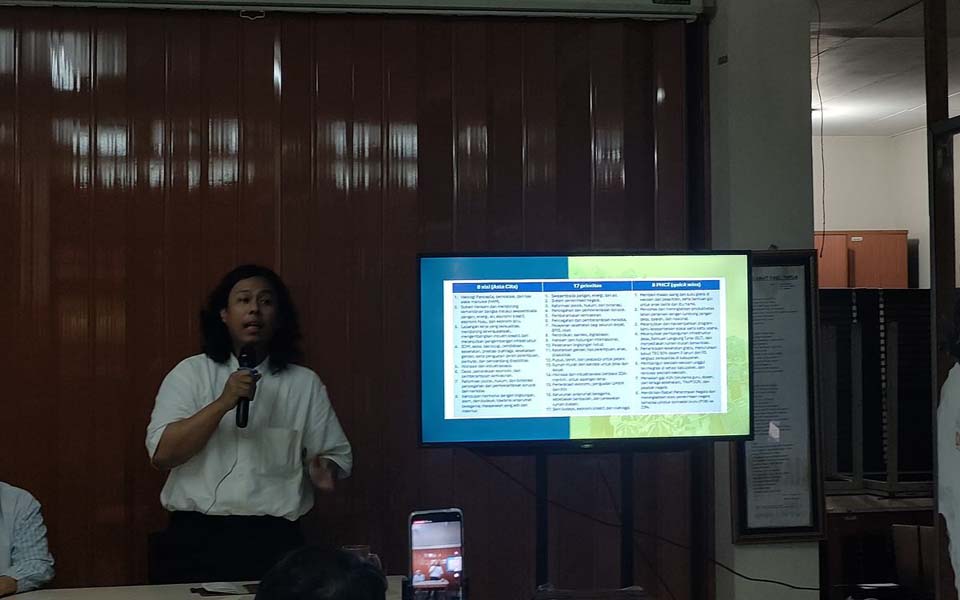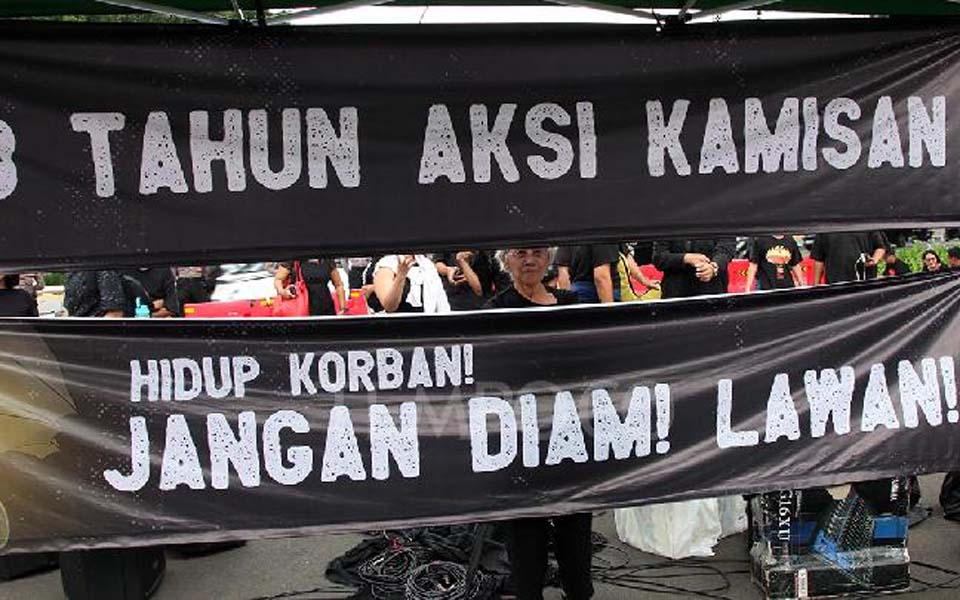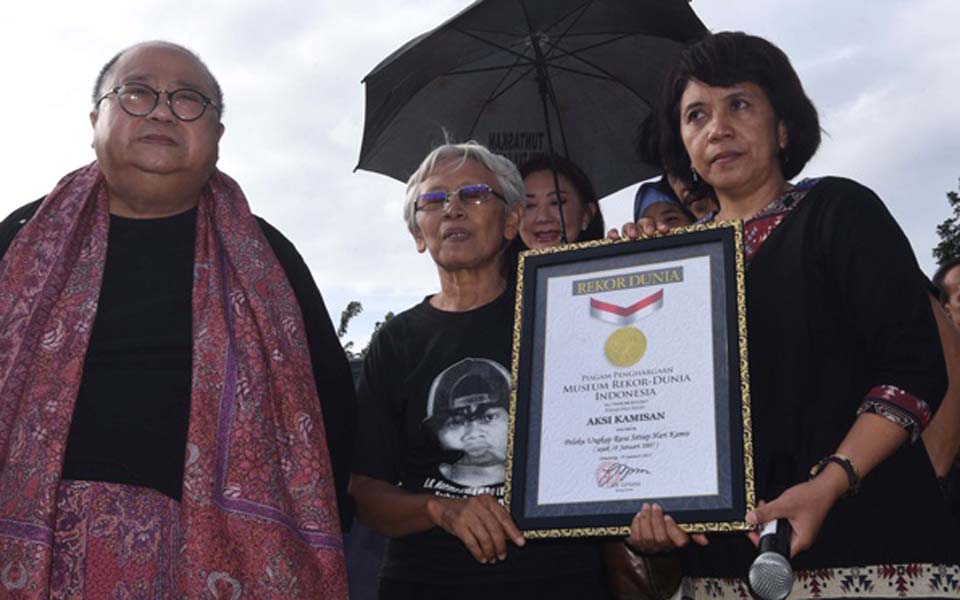Vitorio Mantalean, Bagus Santosa, Jakarta – On September 24, 1999, thousands of students and ordinary people rallied at various locations in Jakarta, including around the Salemba University of Indonesia and the Semanggi Bridge in Central Jakarta.
They were opposing the ratification of the Draft Law on Dealing with Dangerous Situations (RUU PKB) which was considered to be a setback of reformasi – the political reform process that began in 1998 – that had been fought for so desperately.
The demonstrations turned into riot when the TNI (Indonesian Military) and Polri (National Police) personnel dispersed the demonstrators using tear gas, clubs and live rounds.
As a result, students and civilians died. Official data from the National Human Rights Commission (Komnas HAM) recorded that 11 people were killed and hundreds of others injured.
25 years or the equivalent to 300 months or around 9,000 days has passed since the heartbreaking tragedy.
However, not even a shadow of justice has crossed before the eyes of the victim and families that were left behind.
Komnas HAM investigation
Following the tragedy, in 2021 Komnas HAM formed the Gross Human Rights Violations Ad Hoc Team to investigate the Semanggi I and II tragedies and the Trisakti Tragedy a year earlier.
The team's report, which was released in 2002, showed that the three tragedies were closely tied to the context of power.
"... there is sufficient initial evidence that in the three tragedies there were gross violations of human rights which included murder, persecution, forced disappearance, deprivation of independence and physical freedom that were carried out in a planned, systematic and extensive manner...", read the report.
Komnas HAM recommended that this case be followed up by a human rights court. The Attorney General's Office (AGO) however, as the institution with the authority to carry out prosecutions, never agreed to the recommendation.
The Attorney General argued that there was not enough evidence to prosecute the cases as gross human rights violations and it would be enough if there were dealt with by general courts, even though Komnas HAM's findings showed that the authorities had used disproportionate force against unarmed demonstrators.
The case dossier on the tragedy continued to go to-and-fro between the desks of the Komnas HAM and the AGO, even though activists continue to urge a settlement through a human rights court.
When the victims' families still had some remaining hope, in January 2020 Attorney General ST Burhanuddin stated before the House of Representatives' (DPR) Commission III that the Semanggi I and II tragedies was not a gross human rights violation, in reference to the results of a DPR plenary meeting.
This statement triggered anger among the victims' families, human rights activists and Komnas HAM, who rejected the claim.
The statement was considered to be a denial of the facts on the ground, including the testimonies of witnesses and survivors, and the forensic evidence that proved the use of excessive power by the authorities.
Then Coordinating Minister for Security, Politics and Legal Affairs Mahfud MD acknowledged that the. Burhanuddin departed from a recommendation by the DPR in 2001.
The recommendation was not a legal ruling that could be used as a reference, but simply a political decision.
Ironically, the Supreme Court (MA) rejected a citizen's lawsuit by activists and the victims' families against Burhanuddin's statement.
Acknowledgement and future challenges
There was small breath of fresh air when President Joko "Jokowi" Widodo took an opposite position to the Supreme Court and the Attorney General.
In early 2023 Widodo publicly acknowledged that the Semanggi I and II tragedies were gross human rights violations.
This recognition, according to Widodo, was part of the efforts of his government to achieve a settlement of past gross human rights violations through non-judicial mechanisms that are more based on the restoration of the rights of victims and their families.
"As head of state, I acknowledge that gross human rights violations did occur, in various incidents. The government will try to restore the rights of victims and their families", Widodo said on January 11, 2023.
The acknowledgement was appreciated by a number of parties, although the government was urged not to use this acknowledgement as a justification for impunity for the perpetrators involved in gross human rights violations, in this case the Semanggi II tragedy.
As the end of Widodo's term in office draws near, the case is still uncertain, while the reins of power would soon move to president-elect Prabowo Subianto.
"This is a sign that impunity is still being perpetuated and is proof of the stagnation of human rights protection and the enforcement of justice under the Jokowi government. The full resolution of cases of human rights violations have been neglected during the era of the current government and will certainly be homework for the next government", Amnesty International Indonesia Executive Director Usman Hamid told Kompas.com on Tuesday September 24.
"This represents a challenge in the resolution of cases of gross human rights violations in Indonesia, namely the minimum political will from leaders", he said.
Waiting for generosity and political will from Prabowo as president is felt to be of little hope. Because, not one of the elites in his circle of power has shown a strong commitment to resolve cases of gross human rights violations.
Even during his campaign in the 2024 presidential election, the settlement of the Semanggi II tragedy – as well as other cases of other gross human rights violations – was never mentioned as a priority.
According to various reports, ABRI (the Armed Forces, now the TNI) commander General Wiranto, who was also the Minister of Défense at the time, is considered responsible for the loss of life in the Semanggi II tragedy. However he has never been willing to be questioned on the matter by Komnas HAM.
In the 2024 presidential election, Wiranto who in 1998 was then Lieutenant General Prabowo's commander in the TNI, was appointed to the steering committee of his Prabowo's national election campaign team.
"We can't just wait for a commitment from the new government. We must urge the new government to make big changes", said Hamid.
Sumarsih, a human rights activist and mother of the one of the victims of the Semanggi I tragedy, Bernadinus Realino Norma Irawan (Wawan), emphasized in a statement to BBC Indonesia that the investigation by Komnas HAM was completed in 2002 and the state should not have any significant difficulties enforcing the law.
Instead of becoming a win-win solution, the non-judicial resolution of cases of gross human rights violations without being followed by law enforcement to investigate them will actually be a half-resolution.
"My hope, is that the Attorney General will issue a letter to form an ad hoc (Semanggi II Tragedy) investigation team. The second hope, is that in the next period of the DPR they will immediately propose to the president to issue a presidential decree (Keppres) [to form] an ad hoc human rights court", said Hamid.
[Translated by James Balowski. The original title of the article was "25 Tahun Tragedi Semanggi II dan Impunitas Berkepanjangan".]





